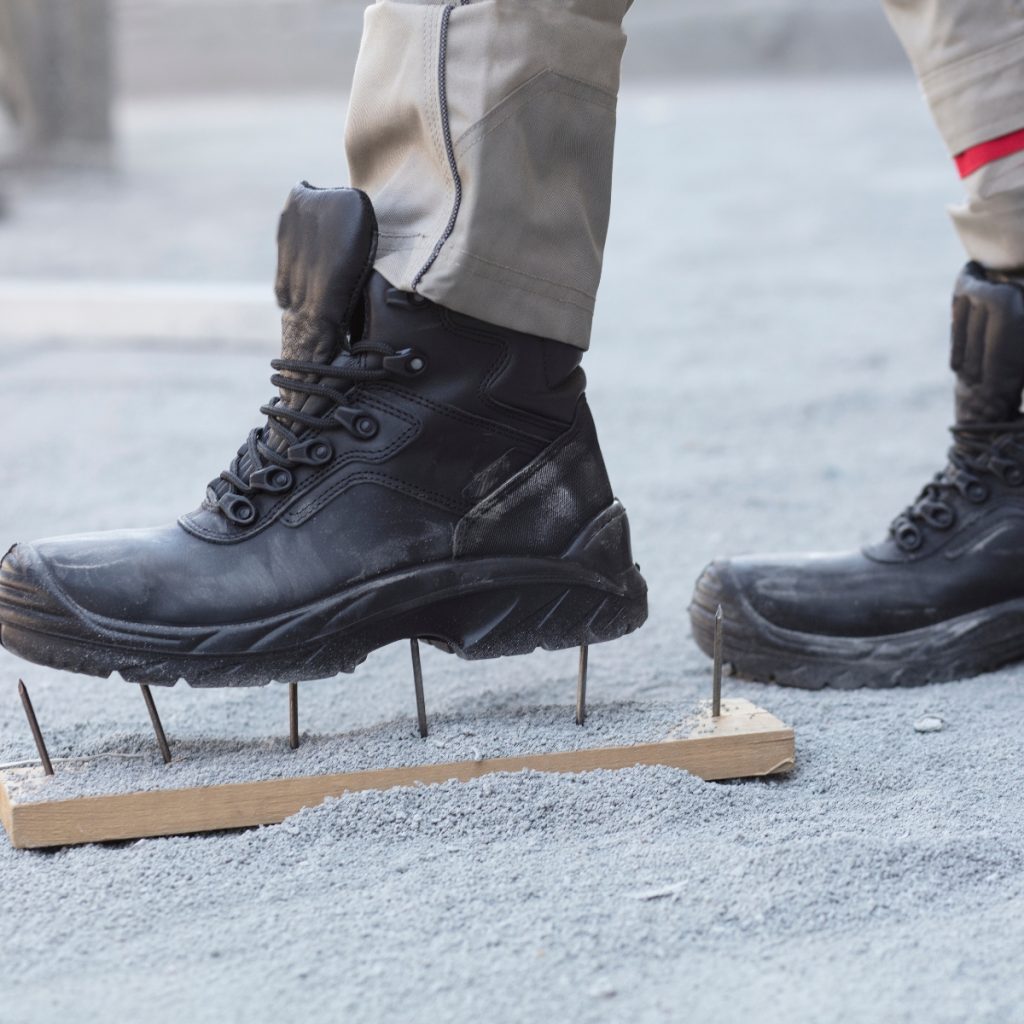Introduction
Workplace safety is a fundamental responsibility for employers and employees alike. Personal protective equipment (PPE) plays a pivotal role in maintaining safety standards, and among the most vital pieces of PPE are safety shoes. Often overlooked, safety shoes provide much more than foot protection — they offer a safeguard against potential hazards that could result in serious injuries. In this article, we’ll explore why safety shoes are essential, their benefits, and how they contribute to a safer work environment.

Understanding Safety Shoes
What Are Safety Shoes?
Safety shoes are specially designed footwear that provides protection against hazards found in various workplaces. Unlike regular shoes, safety shoes are built with reinforced toes, slip-resistant soles, and other protective features that guard against injury.
Steel-Toe Boots These shoes have a steel cap at the toe area to protect against heavy falling objects. They are commonly used in construction and manufacturing sectors.
Composite-Toe Shoes Made from non-metallic materials like fiberglass or Kevlar, composite-toe shoes are lightweight and suitable for environments with metal detectors.
Slip-Resistant Shoes Slip-resistant shoes have specially designed soles to prevent slipping on wet, oily, or uneven surfaces. They are widely used in warehouses and restaurants.
Electrical Hazard (EH) Rated Shoes These shoes reduce the risk of electrical shock, making them essential for electricians and workers in electrical environments.
Key Benefits of Wearing Safety Shoes
Protection Against Foot Injuries Falling objects, sharp equipment, and heavy tools can cause severe injuries. Safety shoes provide a robust barrier that protects the feet from impact and compression.
Prevention of Slips, Trips, and Falls Workplaces with wet or slippery surfaces are prone to accidents. Slip-resistant soles on safety shoes significantly reduce this risk.
Electrical Hazard Protection For those working in electrical environments, EH-rated safety shoes provide an extra layer of protection against electrical shocks.
Protection from Extreme Weather and Temperature Certain safety shoes offer insulation to protect against extreme cold or heat, making them ideal for outdoor work or industrial freezers.
Comfort and Support for Long Working Hours Properly designed safety shoes provide arch support, cushioning, and shock absorption, reducing fatigue for workers who stand or walk for long hours.
Industries That Require Safety Shoes
Construction Industry Construction sites are full of potential hazards like falling objects and sharp debris, making safety shoes an essential part of PPE.
Manufacturing Industry In factories, workers handle heavy machinery and equipment, increasing the risk of foot injuries. Safety shoes protect against cuts, punctures, and impact.
Warehousing and Logistics Warehouses have constant movement of forklifts and heavy packages. Safety shoes shield feet from crushing injuries.
Oil and Gas Industry Oil and gas workers face slippery conditions and exposure to chemicals, making slip-resistant, chemical-resistant shoes a necessity.
Healthcare and Laboratory Environments Healthcare and lab workers require shoes that prevent slips and offer protection against chemical spills and biohazards.
Safety Standards and Certifications
Standards like OSHA (USA), ANSI (USA), and EN ISO 20345 (Europe) ensure that safety shoes meet the necessary protective criteria. Certified safety shoes provide peace of mind and compliance with industry regulations.
How to Choose the Right Safety Shoes
- Assess potential hazards in the workplace.
- Choose shoes made of suitable materials like leather or synthetic materials.
- Ensure proper fit and comfort to avoid foot fatigue.
Common Myths About Safety Shoes
“Safety Shoes Are Uncomfortable” Modern safety shoes are designed for both protection and comfort.
“Only Construction Workers Need Safety Shoes” Workers in various industries, from healthcare to warehousing, require safety shoes.
“All Safety Shoes Offer the Same Protection” Different types of shoes offer specialized protection depending on the job requirements.
Conclusion
Safety shoes are a non-negotiable element of workplace safety. They protect against injuries, offer comfort, and ensure compliance with safety regulations. Employers and employees should prioritize the use of certified, high-quality safety shoes.
FAQs
What are the most common materials used in safety shoes? Steel, leather, composite materials, and rubber are common materials.
Can safety shoes be worn in all weather conditions? Yes, certain safety shoes offer weatherproof and insulated options.
How often should I replace my safety shoes? When there are visible signs of wear or the protective elements are compromised.
Do all jobs require safety shoes? Not all, but many industries mandate their use.
How can I ensure my safety shoes fit properly? Measure your feet correctly and try on different sizes to find the perfect fit.

